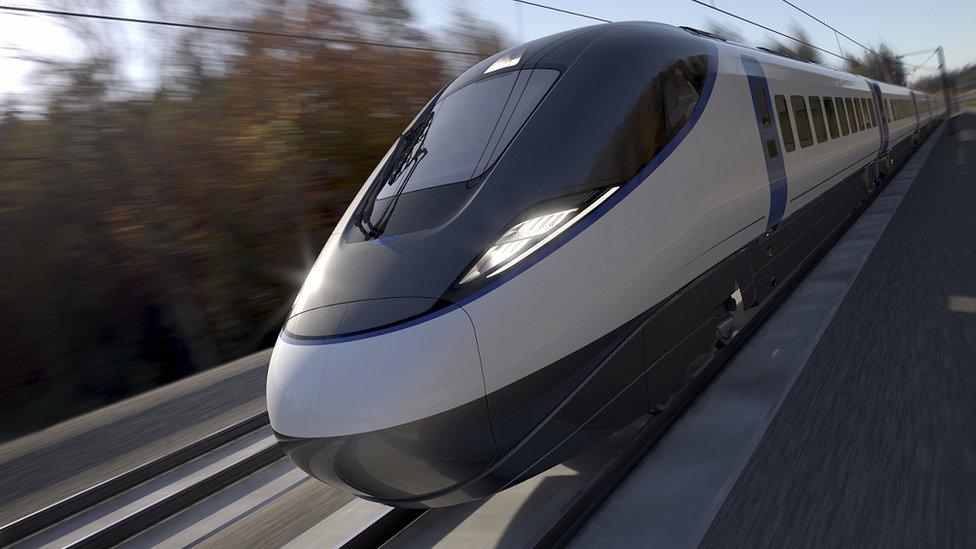HS2: Rail link rated 'unachievable' by infrastructure watchdog
- Published
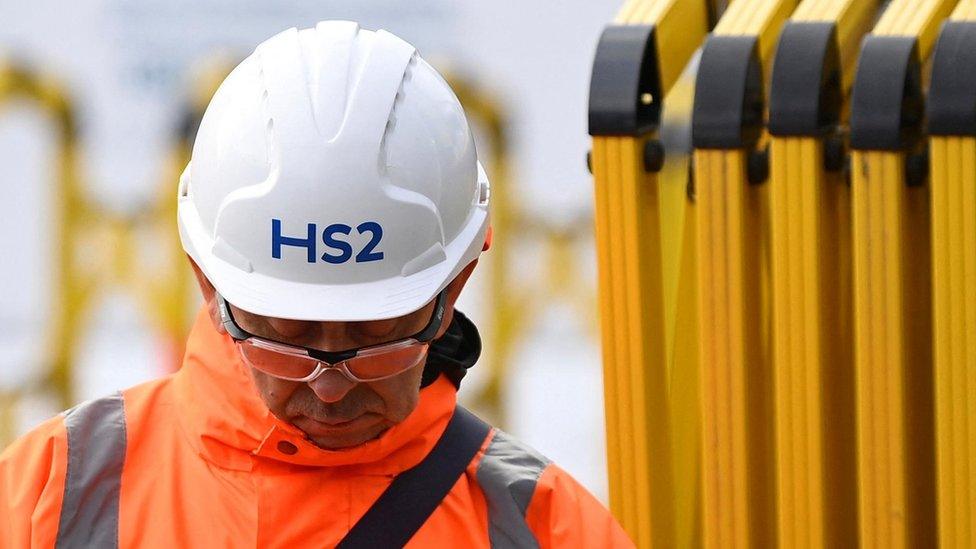
The HS2 rail line has been given an "unachievable" rating by an official watchdog.
It has been given a "red" warning for its first two phases - from London to Birmingham then onto Crewe - by the Infrastructure and Projects Authority.
The project aims to create high-speed rail links between London and central and northern England, but has faced major delays and criticism.
The government says it remains committed to delivering HS2.
The red rating came in the IPA's annual report on major projects, external, which was published on 20 July and gave a snapshot of progress on 244 projects.
The IPA describes itself as the government's centre of expertise for infrastructure and major projects, and reports to the Cabinet Office and HM Treasury.
Under the IPA's grading system, a red rating implies: "Successful delivery of the project appears to be unachievable."
The rating also means there are "major issues with project definition, schedule, budget, quality and/or benefits delivery, which at this stage do not appear to be manageable or resolvable".
"The project may need re-scoping and/or its overall viability reassessed."
The phase of the project running from Crewe to Manchester was given an "amber" grading by the IPA, under which successful delivery of a project "appears feasible", but "significant issues already exist".
The London to Birmingham leg of HS2 was due to open in 2026, but is now expected between 2029 and 2033.
An eastern leg of the line running to Leeds has been scrapped, and instead a shorter high-speed line will link Birmingham and East Midlands Parkway.
In March, the government announced it was delaying the Birmingham to Crewe leg by two years to cut costs.
An HS2 spokesperson said construction on the line was now hitting a "peak", with "work intensifying and huge civil engineering structures taking shape along Phase One of the route".
The spokesperson added the priority was to ensure that the initial high-speed services - connecting Old Oak Common in west London and Birmingham Curzon Street - were running by the current target of the early 2030s.
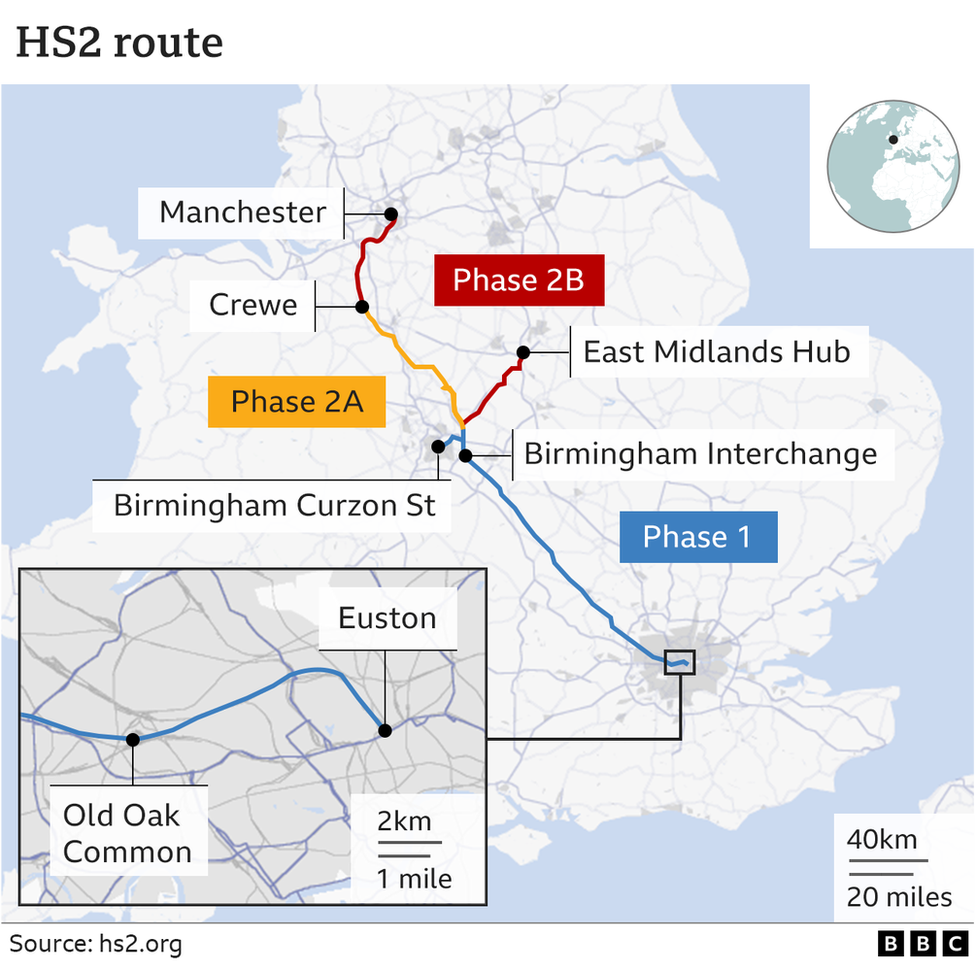
Management issues and unrealistic land valuations have caused costs to spiral.
A budget of £55.7bn for the whole project was set in 2015, but the target cost excluding the eastern leg of Phase 2b from the West Midlands to the East Midlands has soared to between £53bn and £61bn at 2019 prices.
Earlier this month, HS2 Ltd's chief executive Mark Thurston announced his resignation - he will leave his role in September after six and a half years.
His resignation came as phase one of the project between London and Birmingham is under construction, with major work taking place at more than 350 sites.
In March, Transport Secretary Mark Harper announced work at London Euston would be paused for two years after costs increased from £2.6bn to £4.8bn.
A spokesperson for the Department of Transport said: "We remain committed to delivering HS2 in the most cost-effective way for taxpayers.
"HS2 will bring transformational benefits for generations to come, improving connections and helping grow the economy."
Related topics
- Published6 October 2023
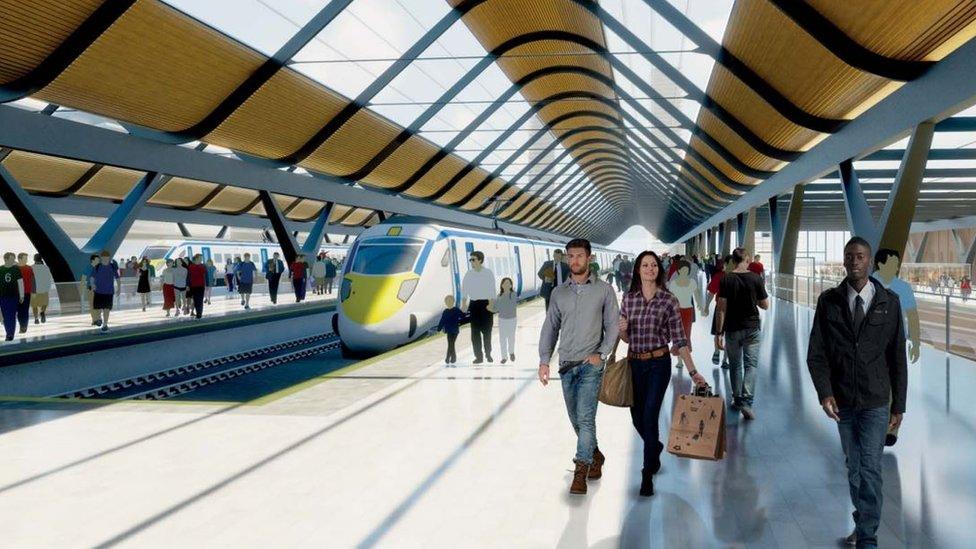
- Published7 July 2023
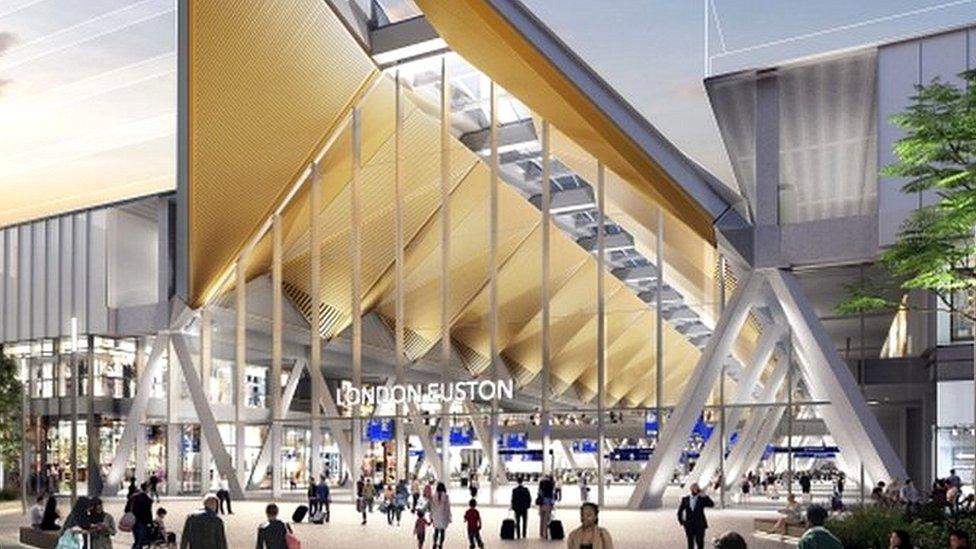
- Published27 March 2023
